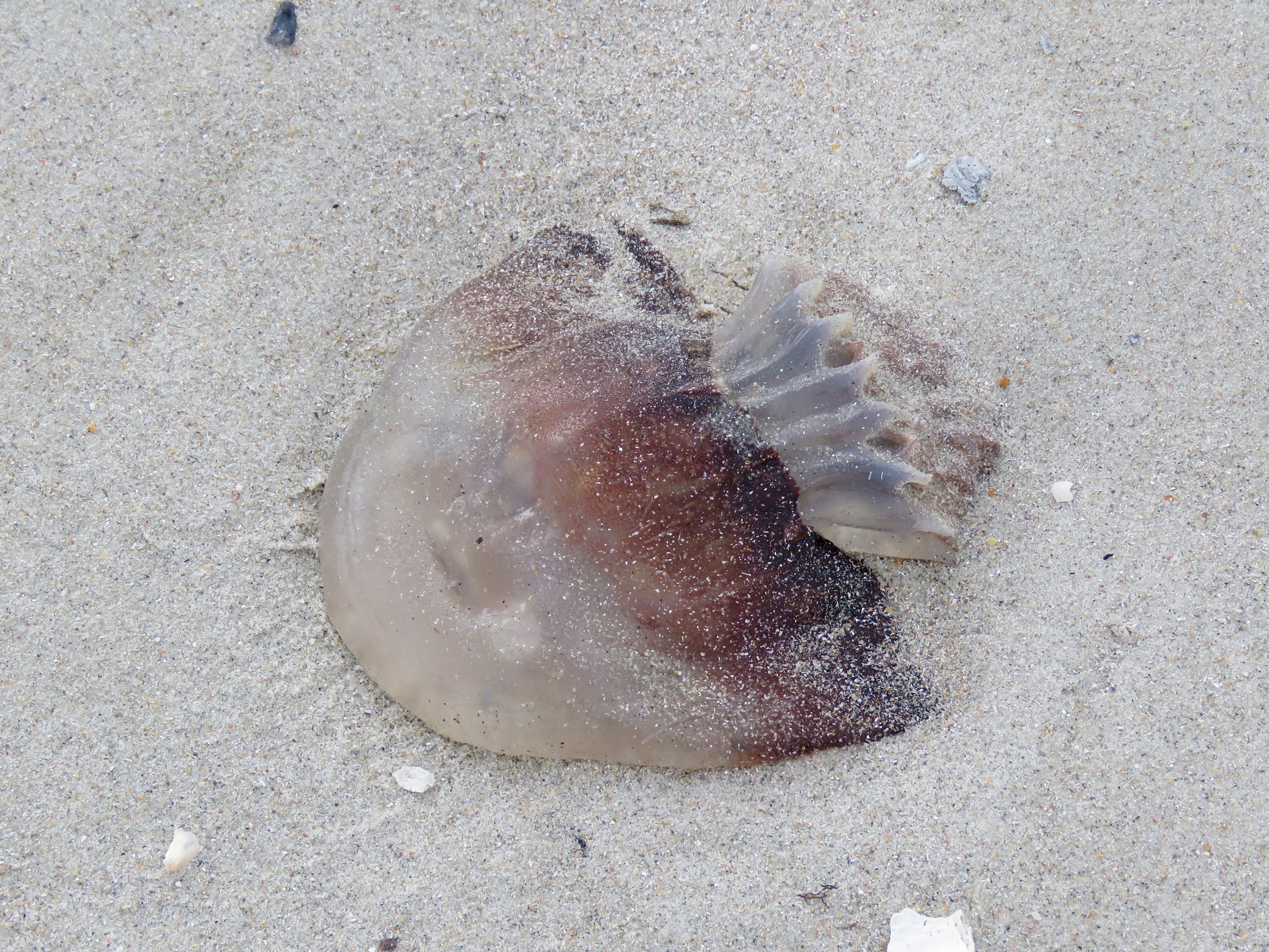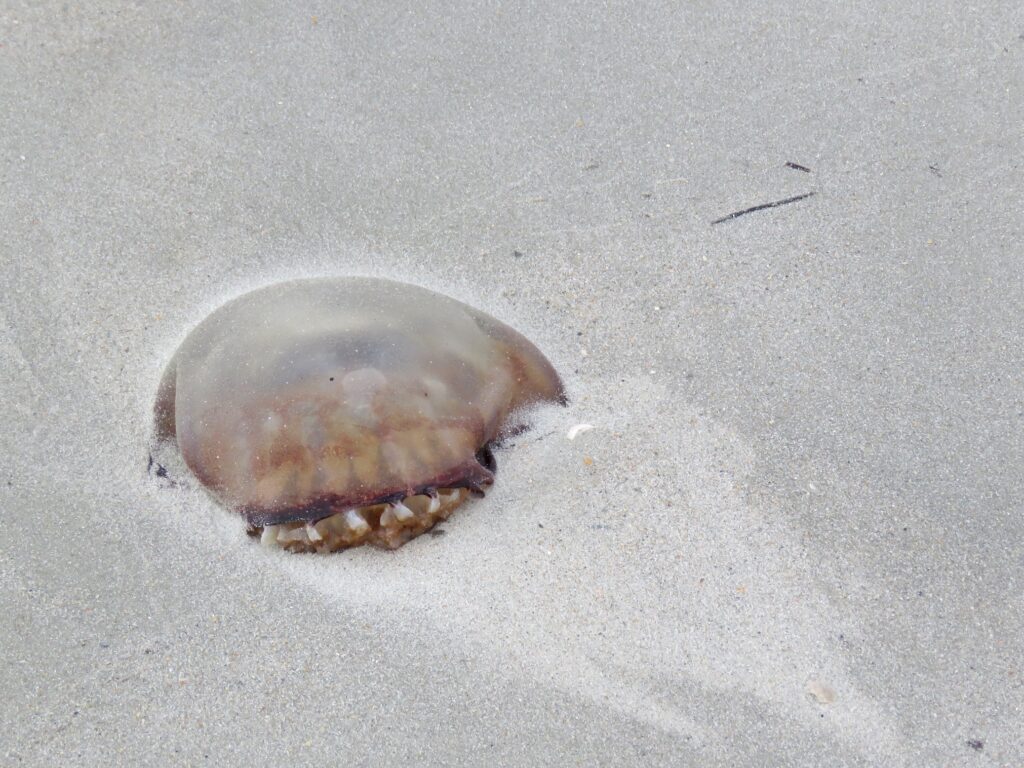

This week for Flora and Fauna Friday we have a gelatinous, spherical, planktonic animal who gets eaten in interesting ways: Cannonball Jelly (Stromolophus meleagris).
The Cannonball Jelly is the most common Jellyfish in the tidal rivers surrounding Edisto Island. The Cannonball Jelly, like most Jellyfish, is planktonic. They are totally subject to the whims of the ocean’s currents. From summer through fall, their numbers surge along the coast. They can often be seen floating past in blooms of dozens to hundreds or washed up en masse on beaches after storms.
Their common name accurately describes their simplistic shape, a helmet-like dome trailed by stubby, frayed tentacles. They can reach up to ten inches across and are quite drab in color, with only a washed-out burgundy belt to accent their translucent milky-gray complexion. Their stumpy, fluffy tentacles are rather unassuming as well and indeed lack pretty much any punch. They mainly feed on microscopic animals, including all manner of larval crustaceans, molluscs, and fish. Cannonball Jellies are still toxic but rather than wielding explosively venomous nematocysts, they only exude a poisonous slime. They’re difficult to get stung by and the effects are usually just mild irritation, to both parties.
The Cannonball Jelly is probably best known for getting eaten. They are a staple in the diets of the endangered Leatherback Sea Turtle (Dermochelys coriacea). Leatherbacks are specially adapted to eating Jellyfish and our rotund Jelly is quite the appetizing meal. Jellyfish are also eaten by people, just usually not Americans. The Cannonball Jelly fishery is a developing economy here in the Southeast and a potentially profitable export to Asian countries, where re-hydrated Jellyfish is a regular menu item. At the moment the business is exclusive to Georgia. Compared to most Jellyfish the Cannonball has a rather solid constitution, feeling more like rubber than Jell-O in the hand. This makes them well suited for harvest, drying, and subsequent eating!